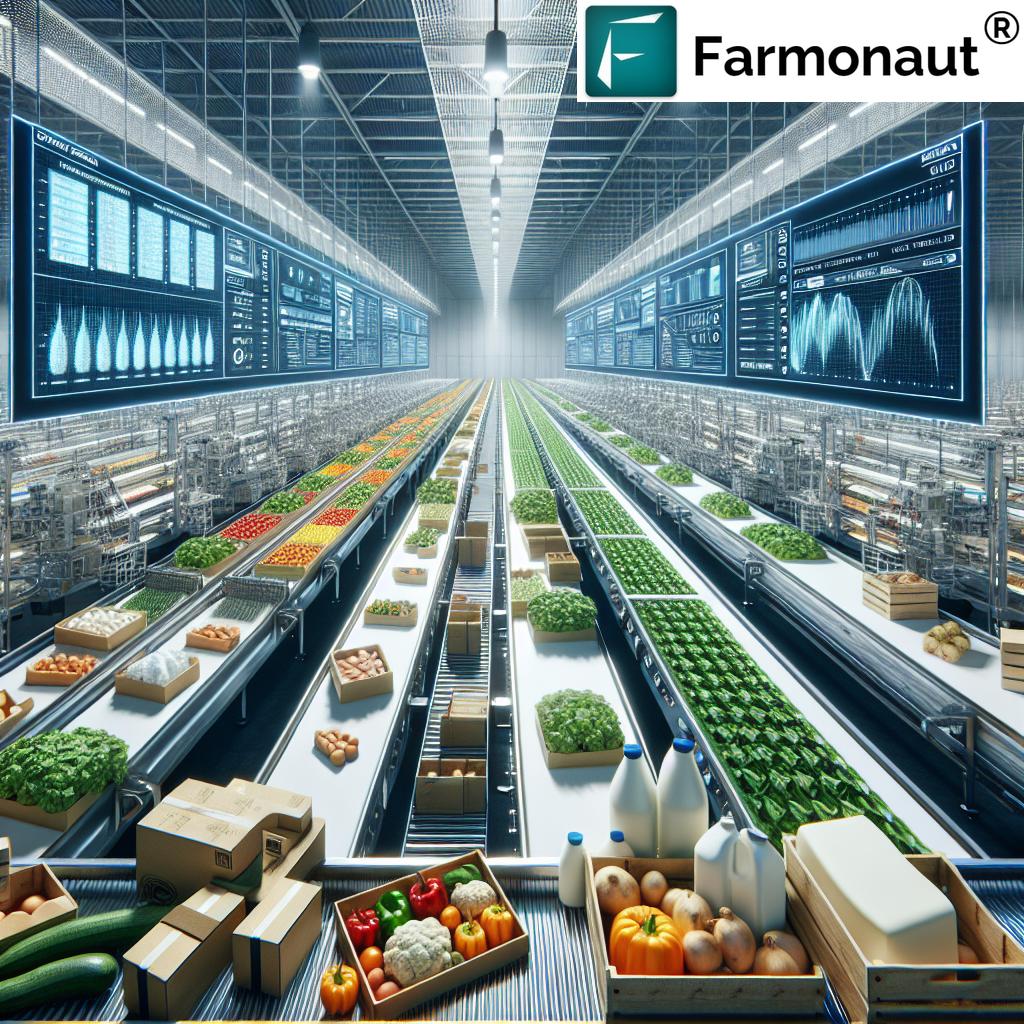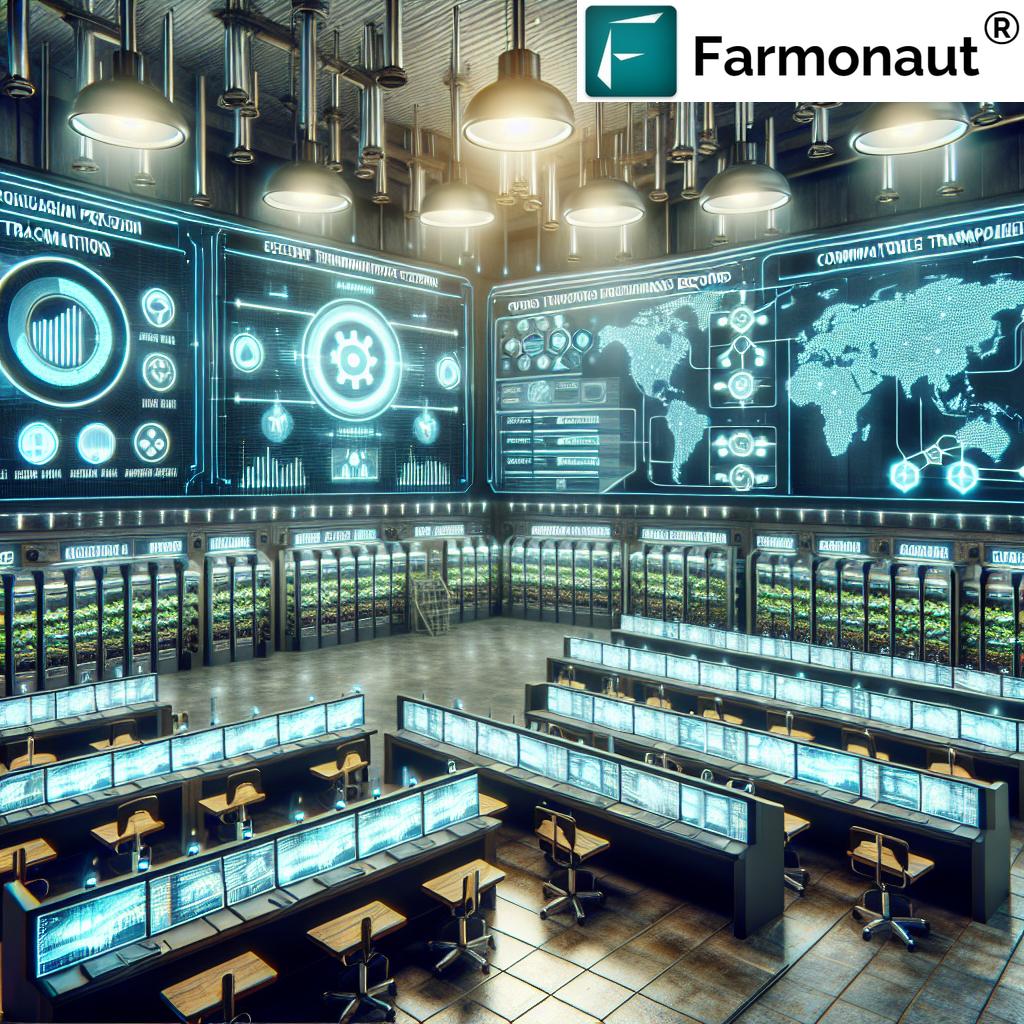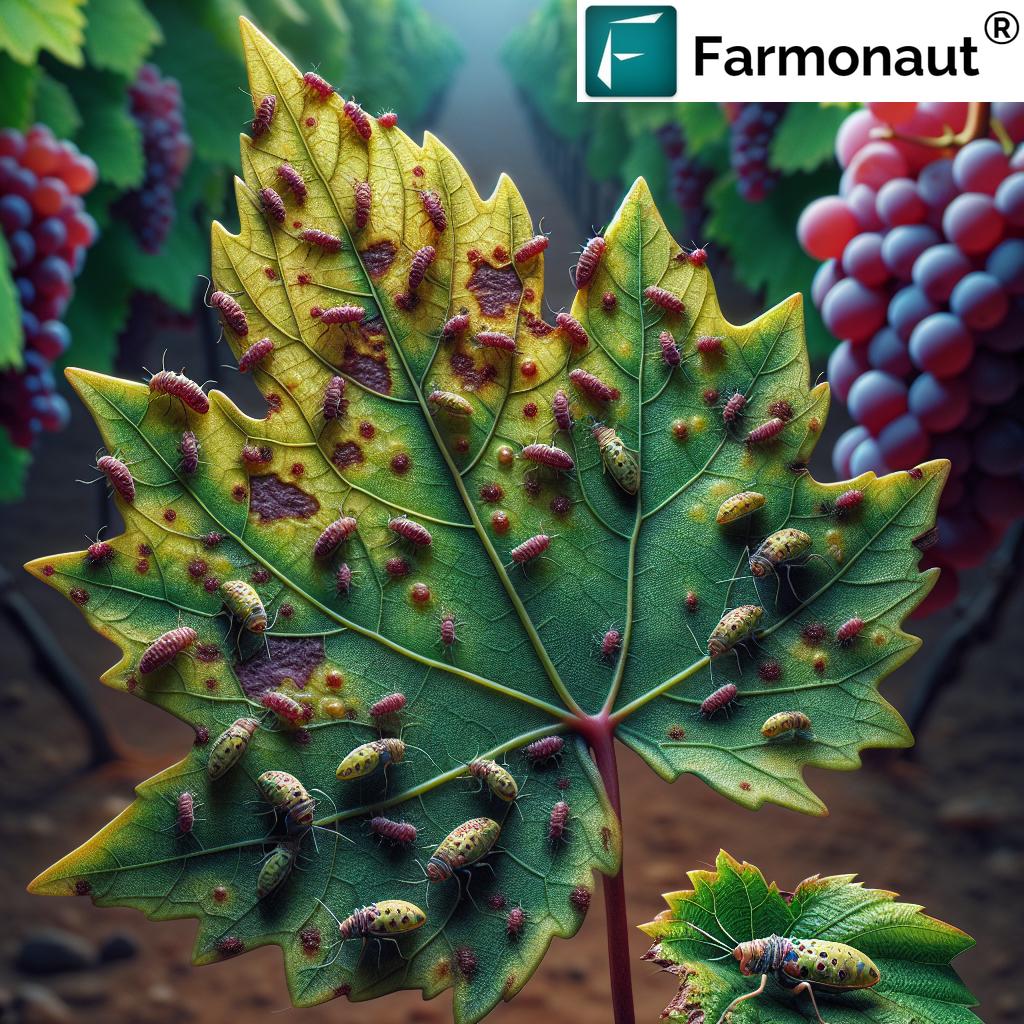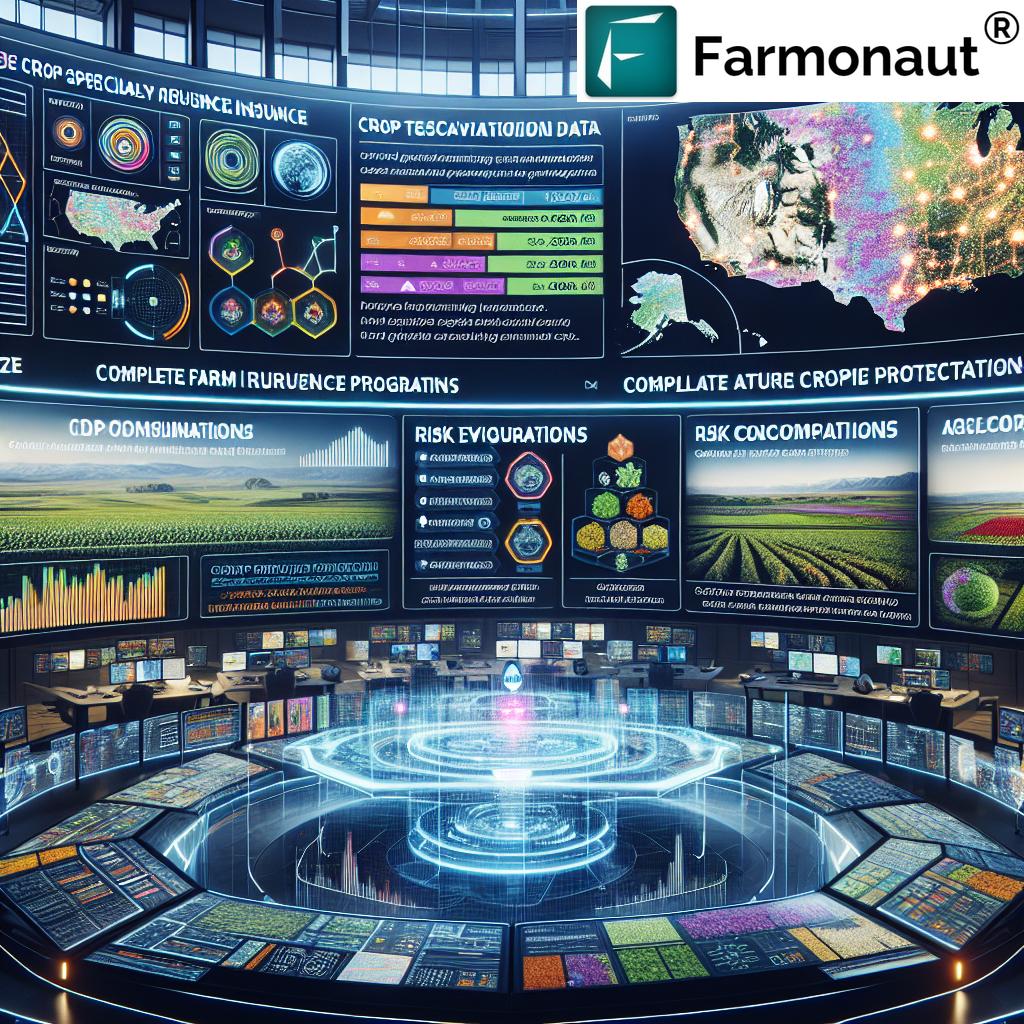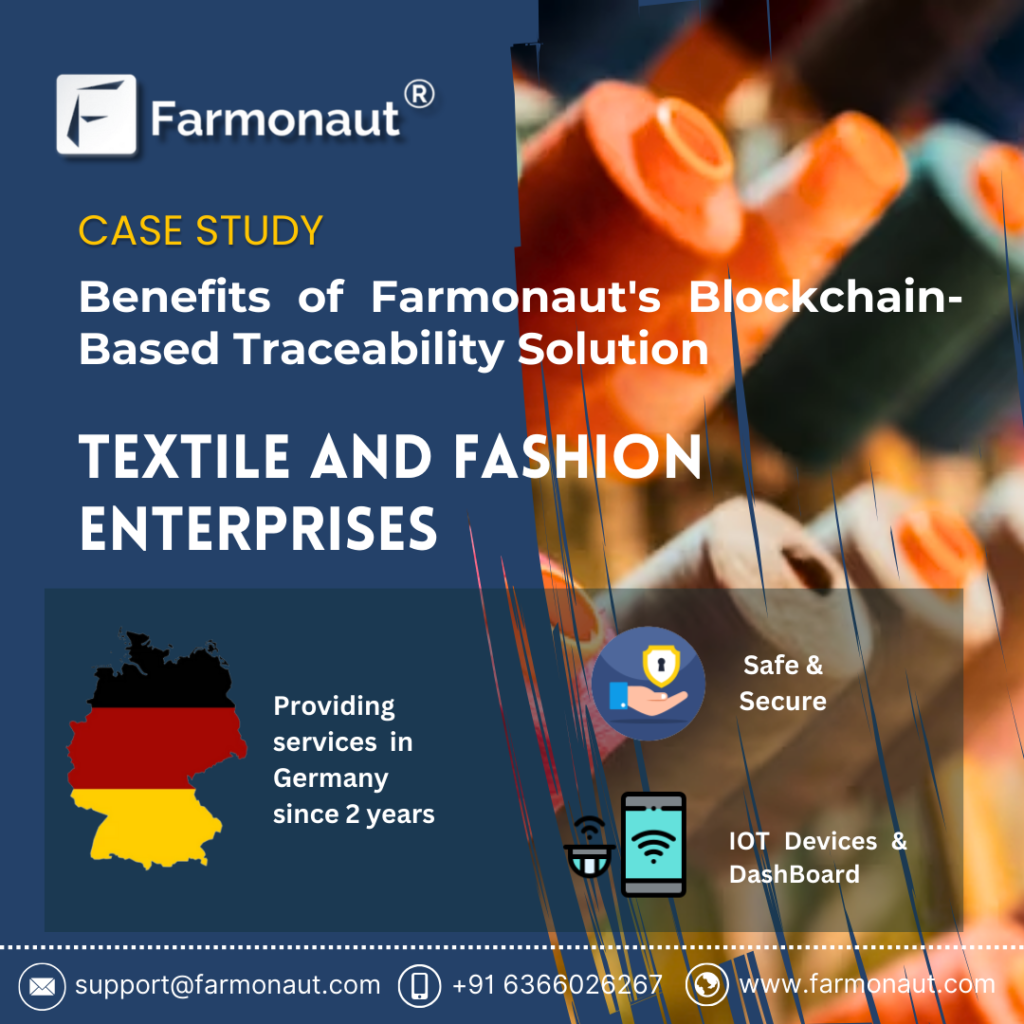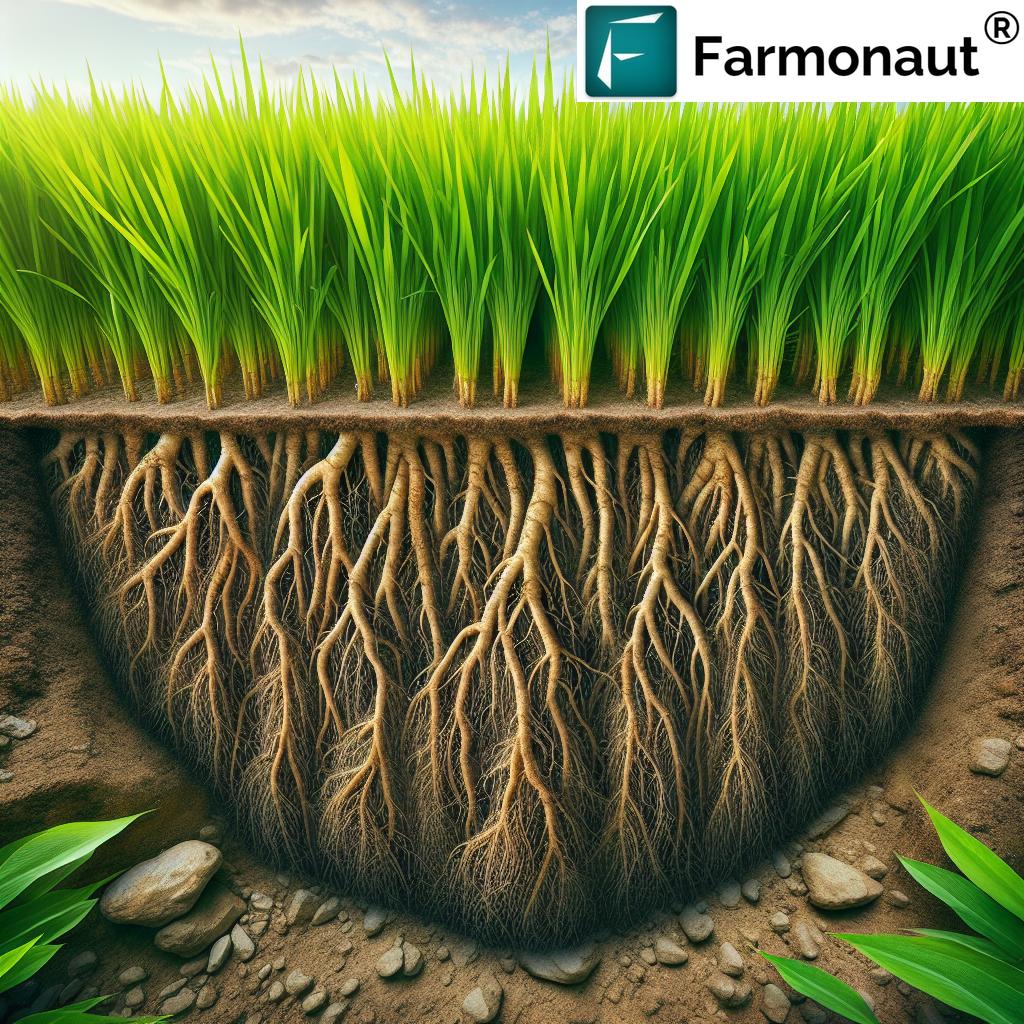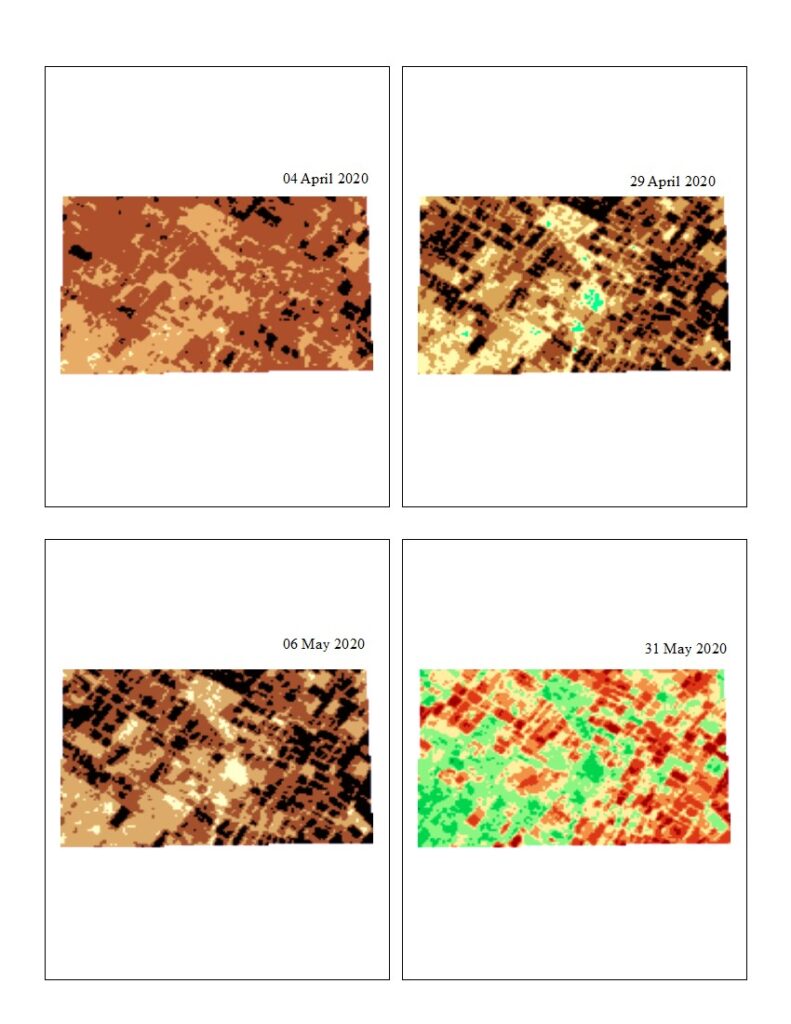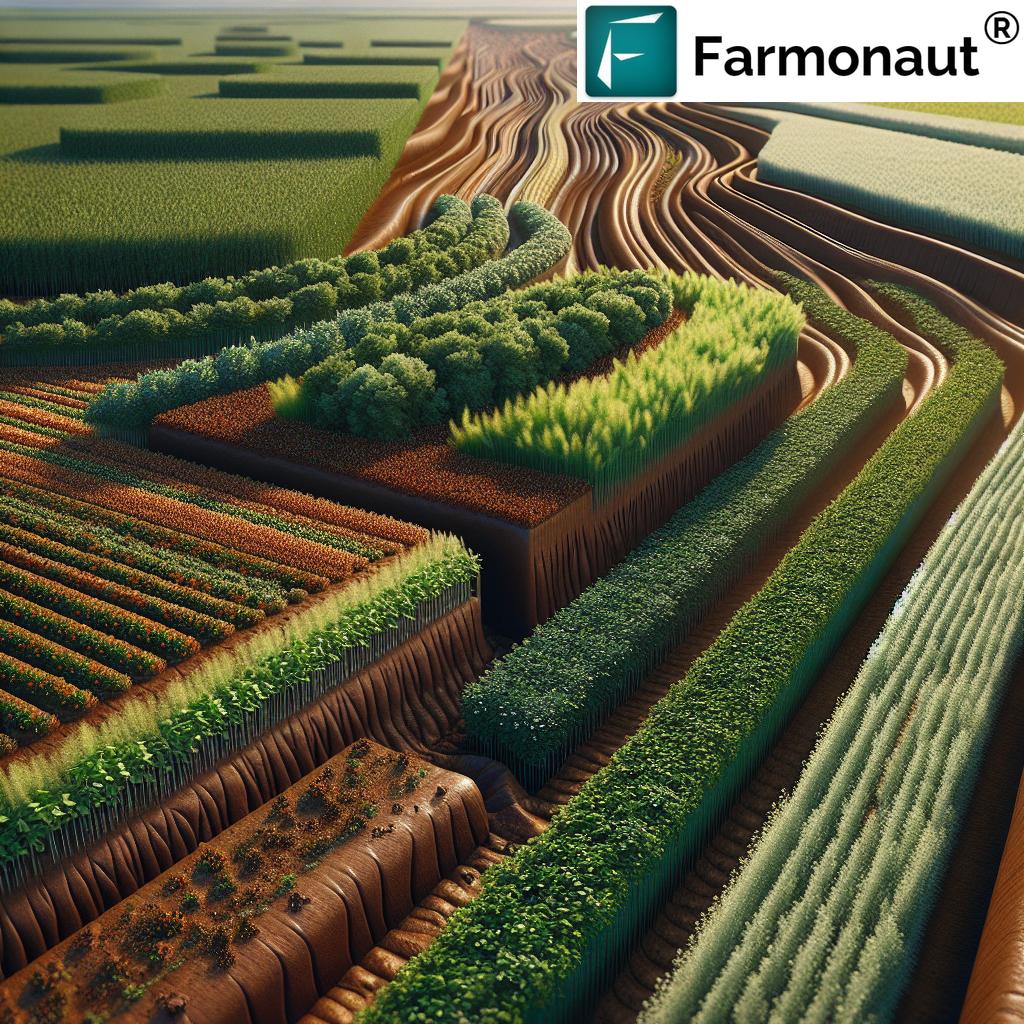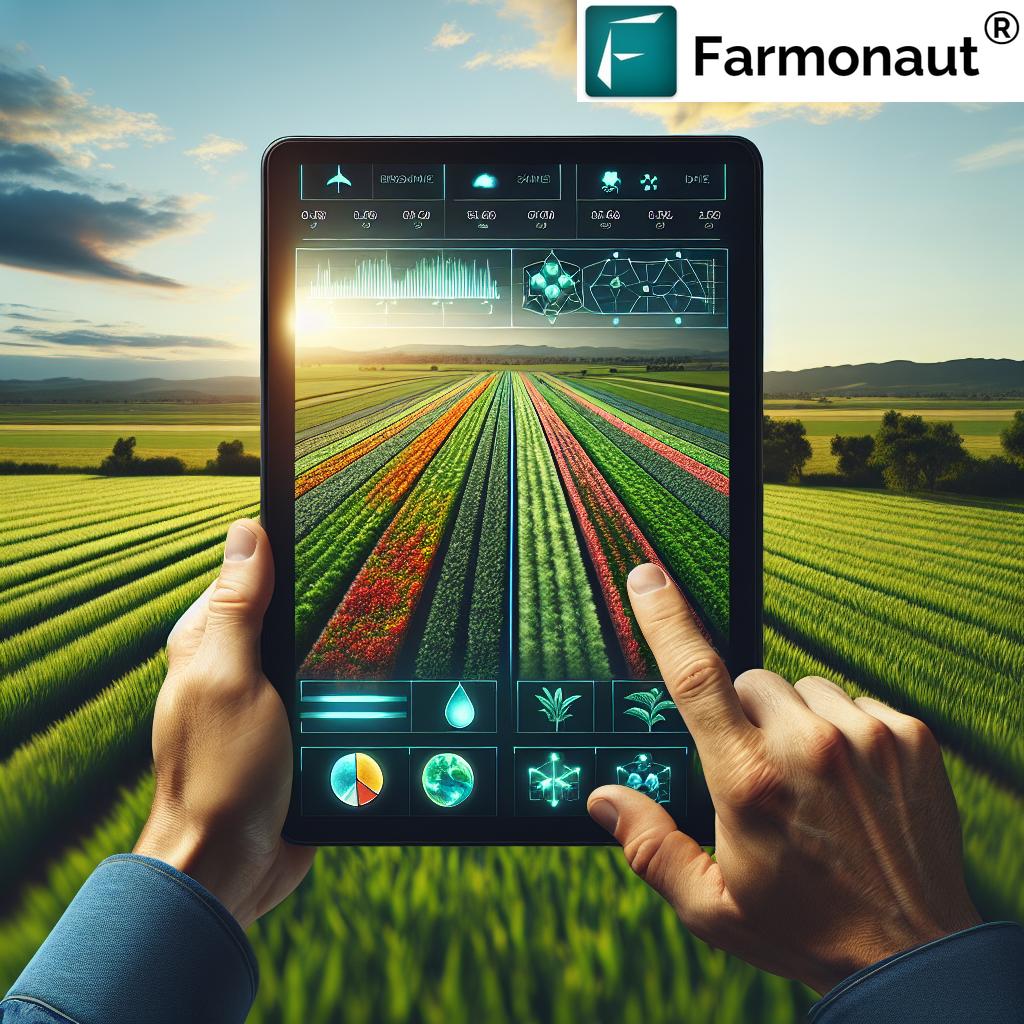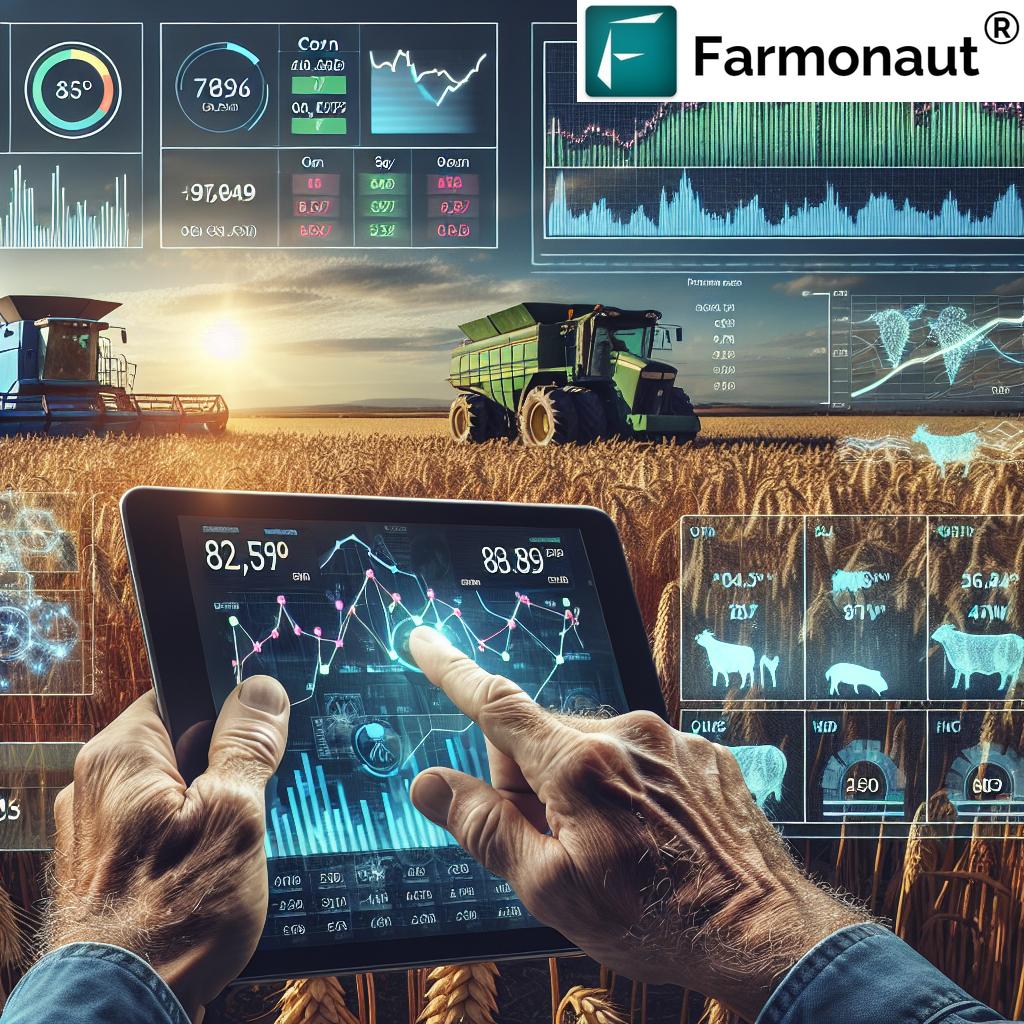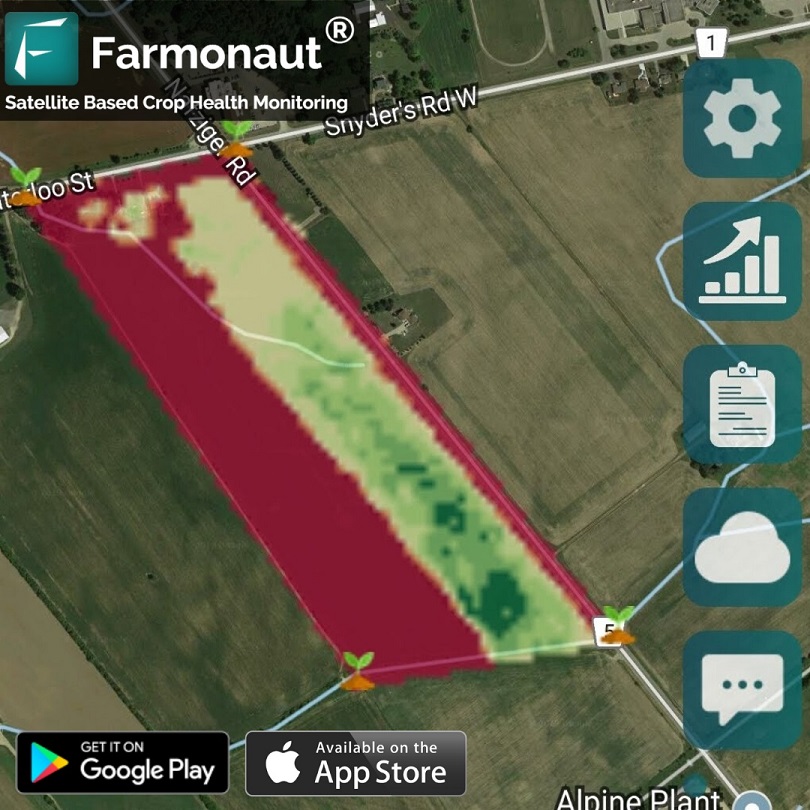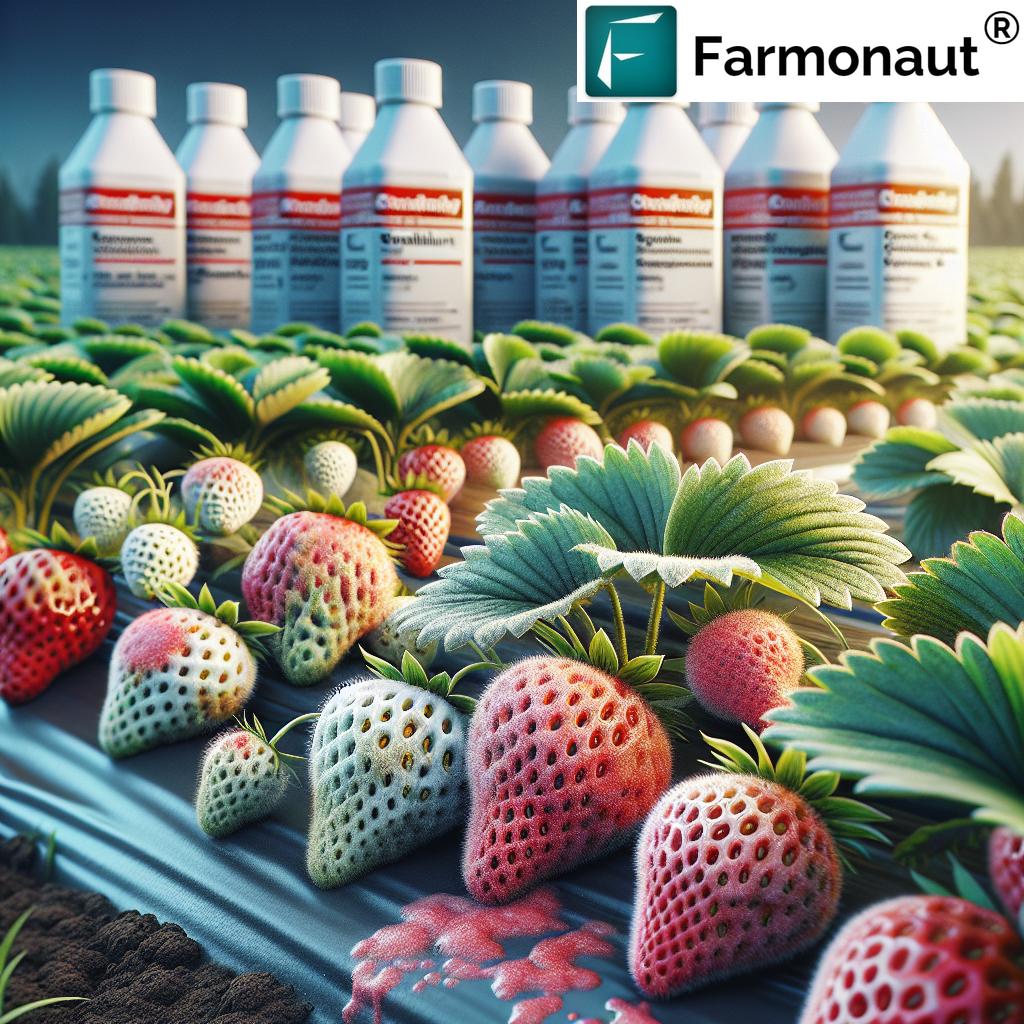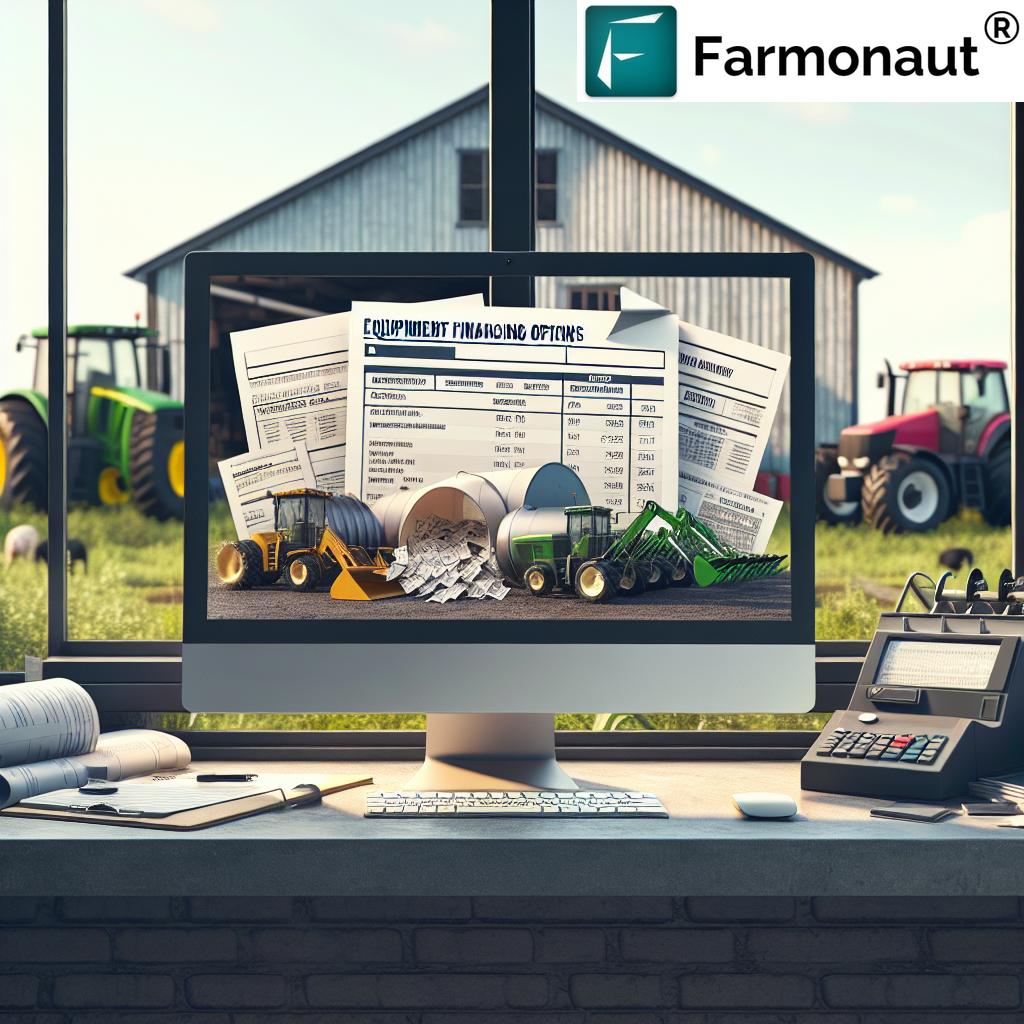| “Over 60% of global consumers consider traceability important for food safety, driving rapid adoption of agri-tech solutions.” |
Traceability Solution: Unlock Agri Transparency Fast!
- Introduction
- The Importance of Traceability in Agriculture, Farming & Forestry
- Core Technologies Driving Traceability
- Comparative Table: Traceability Technologies
- Implementing Traceability Solutions
- Challenges in Agricultural Traceability
- Farmonaut: Advanced Solutions for Traceability
- The Future of Traceability in Agri & Forestry Sectors
- FAQs on Agri-Traceability Solutions
- Summary
Introduction: Elevating Trust with Traceability Solutions in Agriculture
In the fast-evolving landscape of agriculture, farming, and forestry, traceability is rapidly becoming a cornerstone for all stakeholders. It’s not just about tracking data or documenting a product’s journey from farm to consumer. Instead, it’s about transparency, compliance, and trust—ensuring every product meets safety standards while satisfying consumer demand for accountability.
Consumers are more conscious than ever about food safety and ethical sourcing. As producers, suppliers, and regulators, we must adapt quickly, leveraging technology to demonstrate our commitment to food traceability systems, quality assurance, and operational efficiency. The synergy of IoT in agriculture, blockchain in farming, AI-powered advisory, and satellite-based data has redefined the meaning of “from farm to fork.”
This blog dives deep into how traceability empowers every link in the agricultural supply chain, examining the practical technologies, cloud-based systems, and innovative approaches making agricultural supply chain transparency more robust and accessible—no matter your role in the agriculture sector.
The Importance of Traceability in Agriculture, Farming, and Forestry
Let’s begin by understanding why traceability solution is vital for the agricultural sector:
1. Enhancing Consumer Confidence and Expanding Markets
- Transparency allows consumers to see the origin, journey, and methods used in production, processing, and distribution. This openness fosters trust, supports premium pricing, and provides access to new and international markets.
- Comprehensive traceability demonstrates a commitment to quality, differentiating producers and agribusinesses.
2. Food Safety and Quality Control
- Robust traceability systems allow rapid action during food recalls. If contamination or a violation occurs, authorities can identify, track, and contain affected products quickly, minimizing consumer risks and protecting public health.
- This traceability capability often determines compliance with food safety standards across local and global markets.
3. Regulatory Compliance and Record-Keeping
- For farmers and producers, traceability is essential to demonstrate compliance with evolving food safety, sustainability, and ethical sourcing regulations.
- In today’s globalized markets, maintaining comprehensive product records (data) is often required to gain or retain access to premium markets.
4. Sustainability, Environmental, and Ethical Sourcing
- As awareness rises around sustainable farming practices, deforestation, and ethical labor, traceability gives both suppliers and consumers the information needed to verify claims. It supports transparent and responsible environmental stewardship.
- This oversight is especially critical in forestry (forest traceability), coffee, cocoa, palm oil, and other sectors under environmental and social scrutiny.
5. Operational Efficiency, Management, and Reduced Risk
- Efficient, digital traceability systems boost operational performance—from farm management and crop health monitoring to logistics and recall management.
- They also reduce the risks and costs associated with product contamination, fraud, or lack of compliance.
In short—traceability isn’t just a regulatory checkbox; it’s central to a safer, more transparent, and sustainable food supply chain.
Key Trivia
| “Blockchain-based traceability systems can reduce food recall times by up to 80%, enhancing transparency and compliance in agriculture.” |
Core Technologies Driving Traceability in Agriculture
Traceability technology solutions rely on the seamless integration of multiple technological advances, each improving our ability to track, document, and verify the agricultural product’s journey.
Internet of Things (IoT) in Agriculture
- IoT devices—including field sensors and RFID tags—collect real-time data on crop health, soil quality, livestock movement, and environmental conditions.
- They enable continuous crop monitoring and instant notification of anomalies for rapid, informed interventions and improved compliance with food safety standards.
Applications:
- Vegetable traceability: Track harvest date, field ID, and pesticide use in real time.
- Dairy traceability: Monitor conditions from farm to processing facility to ensure cold chain compliance.
- Livestock health: Proactively identify disease outbreaks.
Blockchain in Farming
- Blockchain technology introduces a secure, immutable ledger for all traceability entries across the supply chain, from farm to fork.
- Each action and transaction is digitally recorded, ensuring data integrity—once entered, it cannot be altered retroactively.
- This is invaluable for proving a product’s origin, handling, and true journey—empowering both compliance and consumer trust.
Real-world benefits:
- Instant documentation of every step in processing, packaging, and shipping, accessible to all authorized stakeholders.
- Reduces risks of data tampering or fraudulent record-keeping, and speeds up response in case of recall or regulatory audits.
Artificial Intelligence (AI) and Machine Learning
- AI systems process and analyze vast datasets collected from the field, satellite, or supply chain in real time.
- They identify patterns (such as seeing crop disease signs from space), predict supply chain disruptions, and support rapid, data-driven decision-making.
- AI is particularly powerful in risk management, reducing food safety incidents and enhancing traceability efficiency.
Example: Using AI, producers can predict potential contamination risks in their agricultural products, minimizing loss and enhancing safety compliance.
Satellite Imaging & Remote Sensing Systems
- High-resolution satellite data provides comprehensive coverage of crop health, soil moisture, irrigation needs, and adverse events (drought, flooding, pests).
- Remote monitoring allows both smallholders and large-scale enterprises to oversee dispersed operations and react faster—raising overall efficiency.
- Satellite systems support farm to consumer transparency by supplying verifiable data at every production or harvest step.
Geographic Information Systems (GIS)
- GIS technology maps every component of the supply chain, linking physical location with operational data.
- This spatial mapping is crucial for tracking products (from batch to specific plot or farm), verifying compliance, and supporting traceability audits.
Traditional Data Systems
- Legacy systems—including paper records and spreadsheets—persist in many parts of the agricultural sector.
- While less efficient in terms of implementation speed and transparency, they can serve as a base for digital upgrades.
Comparative Feature Table: Traceability Technologies in Agriculture
| Technology Type | Key Features | Implementation Speed | Data Transparency | Regulatory Compliance (Est.) | Typical Use Cases |
|---|---|---|---|---|---|
| IoT in Agriculture | • Real-time monitoring with sensors/RFID • Automated data logging • Alerts on anomalies |
Fast | High | Up to 85% | Vegetable crop monitoring, livestock health, dairy traceability, irrigation control |
| Blockchain in Farming | • Immutable record-keeping • Transparent transaction history • Decentralized verification |
Medium | Very High | Up to 90% | Farm-to-consumer traceability, ethical and sustainable sourcing, regulatory audit trails |
| Traditional Data Systems | • Manual record keeping • Disconnected datasets • Prone to errors |
Slow | Low | Up to 60% | Base for compliance, starting point for digital upgrades, small operations |
Implementing Traceability Solutions for Agriculture, Farming, and Forestry
Adopting comprehensive traceability technology solutions involves a structured, collaborative process:
Step 1: Data Collection and Integration
- Gather comprehensive information at every stage of the supply chain, including farm, processing, storage, and distribution nodes.
- Integrate these diverse data streams into a unified, centralized system, ensuring both accessibility and reliability for all stakeholders.
- Digital tools such as IoT sensors, RFID devices, mobile apps, and cloud-based software streamline this step, supporting accurate record-keeping and real-time access.
Step 2: Technology Deployment
- Choose technologies best suited to the specific needs and scale of your agricultural operation. For example:
- IoT for real-time field or livestock monitoring
- Blockchain for secure traceability and anti-fraud verification
- Satellite and AI-powered systems for scalable, data-driven oversight
- Implement mobile or cloud-based systems that allow all authorized actors (farmers, suppliers, processors) to record and retrieve data efficiently.
- Continuous improvement: Update and scale systems as regulations and product volumes evolve.
Step 3: Stakeholder Collaboration
- Traceability can only succeed if every participant in the agricultural supply chain plays their part. This means:
- Farmers record planting, harvesting, input usage, and field practices.
- Processors document product transformation and safety checks.
- Distributors/logistics track hand-offs and transportation data.
- Retailers and end-users verify history and conformance claims.
- Collaboration and training are crucial to maintaining a robust, end-to-end traceability system.
Step 4: Compliance, Certification, and Market Access
- Align traceability and data practices with local and international regulations and standards—such as GlobalGAP, USDA Organic, or ISO certifications.
- Consider solutions like Farmonaut’s Carbon Footprinting to monitor, demonstrate, and lower your operation’s environmental footprint—essential for regulatory compliance and gaining sustainability-conscious clients.
- Validate key facts with audits, certifications, and digital verification for increased market confidence and consumer trust.
Challenges in Agricultural Traceability Solution Implementation
Despite their many benefits, traceability systems face persistent hurdles, particularly in emerging markets and for smallholder farmers:
-
Initial Investment and Cost: High initial cost for technology adoption (IoT devices, cloud platforms, RFID) can limit adoption by small and marginal farmers.
- Solution: Low-cost, scalable platforms such as Farmonaut’s satellite-based farm management system significantly reduce cost barriers.
-
Standardization and Interoperability: Varying data formats, definitions, and regulations across regions hinder seamless traceability in global trade.
- Solution: Adoption of global standards and APIs (e.g., Farmonaut API for standardized data sharing and integration).
-
Data Security and Privacy: Sensitive information must be protected from unauthorized access or misuse. Data integrity is key for regulatory compliance and consumer trust.
- Solution: Blockchain and advanced cybersecurity protocols, securely integrated in Farmonaut’s Product Traceability solution, address these issues directly.
-
Stakeholder Engagement: Full participation is required, but knowledge gaps and resistance to change can slow implementation.
- Solution: User-friendly apps (see the links below) and inclusive training lower barriers and foster collaboration.
-
Data Reliability and Maintenance: Traceability is only as strong as the data inputted—errors, omissions, or non-compliance can undermine transparency.
- Solution: Automate data collection (IoT, mobile scanning), and empower instant verification at each supply chain node.
Farmonaut: Advanced Data Systems for Comprehensive Agricultural Traceability
At Farmonaut, our mission is to democratize precision agriculture and traceability—making these innovations accessible to farmers, agribusinesses, and institutional clients worldwide. By combining satellite-based monitoring, AI-powered analytics, and blockchain-driven transparency, we offer holistic solutions that address the biggest challenges faced in agricultural traceability system implementation.
How Farmonaut’s Traceability Solution Stands Out
- Satellite-Based Crop Health Monitoring: Leverage multispectral imagery for detailed crop traceability, vegetation health (NDVI), and soil moisture assessment. With large-scale farm management tools, users can monitor vast territories remotely—a game-changer for plantations, forest reserves, and agribusinesses in need of scalable monitoring.
- Jeevn AI Advisory System: Our AI-driven farm advisory tool delivers customized, actionable crop management, irrigation, and pest management advice—based on real-time satellite and field data. This increases operational efficiency and enhances compliance with sustainability standards.
- Blockchain-Based Traceability: Farmonaut’s product traceability module ensures each product’s origin, journey, and handling are logged securely and transparently. This feature is especially critical for:
- Customers in food, textile, and forestry who seek proof of ethical and sustainable sourcing
- Producers who want to bolster consumer trust and access high-value export markets
- Fleet & Resource Management: With real-time fleet tracking, we simplify agricultural logistics and transportation—ensuring efficient, safe delivery of perishable products and comprehensive traceability, even in transit.
- Carbon Footprinting: Stay ahead of global environmental demands. Farmonaut makes it easy for agribusinesses to track and reduce their carbon emissions, supporting data-driven sustainability and compliance with the latest regulations.
- API and Developer Integration: Developers and businesses can integrate our rich satellite imagery, weather, and traceability data directly into their existing systems with the Farmonaut API.
For more details, see the latest API Developer Docs.
Accessibility for Every User
- Farmonaut’s Web and Mobile Apps (Android | iOS) are designed for individual farmers, cooperatives, agribusinesses, government agencies, and corporate clients—wherever you operate, our solutions scale to fit your needs.
- Our subscription tiers are flexible, aligning with the user’s farm size and data needs, ensuring precision agriculture and traceability remain affordable and impactful worldwide.
The Value Proposition: Urgency and Opportunity
- Reduce Risk: Immediate, satellite-verified oversight of every stage, ensuring compliance with food traceability standards and lowering contamination risks.
- Increase Yields & Efficiency: Leverage AI and remote sensing for timely, data-driven decisions—improving farm profitability and minimizing resource wastage.
- Demonstrate Transparency & Sustainability: Unlock high-value, sustainability-driven markets by documenting and sharing your ethical, low-carbon production journey.
- Access to Capital: With crop loan and insurance verification, banks and insurers have reliable data, improving farmer access to essential financing.
The Future of Traceability in Agriculture, Farming & Forestry
As market demand for food safety compliance, sustainable farming, operational efficiency, and transparency surges, the global agri-sector will only see further advancements in traceability technologies. The integration of IoT in agriculture, AI-driven analytics, blockchain in farming, and real-time satellite data will reshape how products are managed and verified.
In the coming years, we can expect:
- More Affordable & Scalable Traceability: Providers like Farmonaut pave the way for small-scale and resource-constrained producers to participate, making compliance and transparency universal.
- Real-Time Decision-making: With AI, instant crop health or contamination alerts will reach the farm and the regulatory desk simultaneously, not weeks later.
- End-to-End, Automated Data Systems: Manual, paper-based records will phase out in favor of automated, digital-first traceability from seed to shelf.
- Green Certifications and Carbon Monitoring: As environmental scrutiny intensifies, digital carbon footprinting, as offered via Farmonaut, and blockchain-based sustainability claims will become market entry tickets.
Whether in the fields of Punjab, India, the wheat plains of Canada, or the coffee landscapes of Brazil, the focus will shift from simply growing more to growing better—safely, sustainably and traceably.
Frequently Asked Questions (FAQ)
Q1: What is agricultural traceability and why is it important?
A: Agricultural traceability means tracking the journey of a product—crop, livestock, or processed food—from its origin (farm) to the end consumer, logging every production, processing, and distribution step. It’s important because it enhances food safety, regulatory compliance, market access, and consumer trust. For example, with a strong traceability solution, authorities can quickly identify and remove contaminated products, preventing harm.
Q2: Which technologies are revolutionizing traceability in agriculture?
A: Key technologies include IoT devices (for real-time data collection), blockchain (for immutable, secure data records), artificial intelligence (for predictive analytics and pattern recognition), satellite imaging (remote crop monitoring), and GIS (spatial mapping for traceability audits).
Q3: How do traceability systems improve sustainability?
A: Traceability enables verification of sustainable farming practices—such as deforestation-free, low-carbon, or ethical labor claims. By tracking every input and process, producers ensure compliance with environmental regulations. Tools like Farmonaut’s Carbon Footprinting make it easier to measure, document, and reduce environmental impact.
Q4: What are the major challenges in implementing traceability solutions?
A: Challenges include high initial investment, non-standardized data formats, data privacy concerns, and the necessity for all stakeholders to participate fully and accurately. Solutions involve user-friendly, scalable systems such as Farmonaut’s mobile and web apps, and joining data-driven networks.
Q5: Can small farmers benefit from advanced traceability solutions?
A: Yes. Innovations in affordable, satellite-based farm management and mobile traceability platforms, like those from Farmonaut, allow smallholders to track product flows, comply with safety and sustainability standards, and gain access to new, high-value markets.
Q6: How does blockchain prevent fraud and increase transparency?
A: Blockchain’s distributed ledger records each transaction permanently and transparently. After data (like a product’s harvesting or shipment info) is entered, it cannot be altered without consensus. This greatly reduces fraud risk, increases trust, and simplifies regulatory audits.
Q7: Where can I find Farmonaut’s traceability and sustainability solutions?
A: Visit Farmonaut.com, download the mobile/web apps, or explore solution pages for Product Traceability, Large Scale Farm Management, Carbon Footprinting, and Fleet Management for more details.
Summary: The Power and Promise of Traceability Solutions
In agriculture, farming, and forestry, traceability solutions go far beyond mere record-keeping. They are drivers of market access, consumer trust, regulatory compliance, food safety, and environmental responsibility. By harnessing the synergy of IoT, blockchain, satellite imagery, and AI—and by integrating these with affordable, user-friendly data systems—we aren’t just responding to new rules. We’re building a food system fit for a more transparent, ethical, and sustainable future.
- For farmers and agribusinesses: Unlock premium markets, optimize costs, and safeguard production with real-time digital oversight.
- For consumers: Gain confidence and peace of mind, knowing every step in the food’s journey can be verified with trusted, immutable records.
- For industry and government: Streamline compliance, manage risks, and boost your sustainability credentials with a next-generation traceability solution.
At Farmonaut, we are proud to lead in this revolution—empowering every stakeholder in agriculture and forestry to thrive in a data-driven, transparent ecosystem.
Unlock the future of food traceability, compliance, and sustainability with state-of-the-art, affordable Farmonaut solutions—built for every farmer, agribusiness, and stakeholder in the evolving agri-supply chain.


